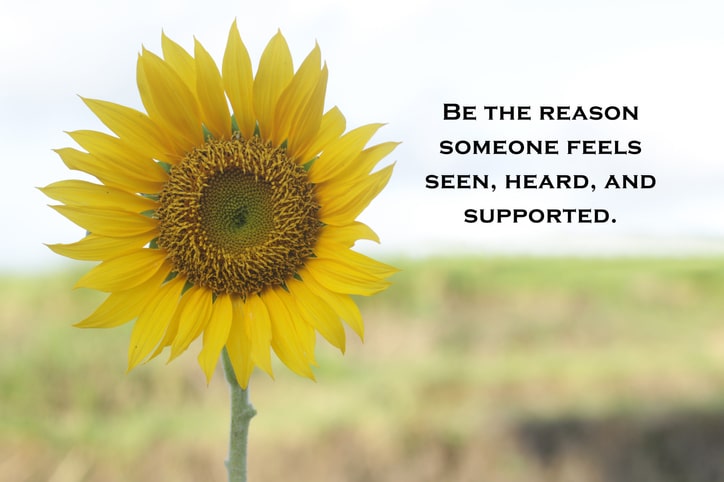I like to go deep and talk about more complicated things like thoughts, feelings, and perspectives. I’m enthralled with discussions around inner growth, discovery, and improvement. However, to communicate with this depth, I must feel at ease and be in a space where others are attentive and expressing interest without judgment.
It takes skill and confidence to communicate courageously.
You must be open and honest to promote trust and respect in relationships. Creating a safe space for others to be vulnerable is essential. In team settings, everyone must commit to listening genuinely with curiosity and compassion to cultivate cohesiveness and collaboration.
That’s why a common theme on employee engagement surveys is around feeling safe.
These questions get to the heart of an individual’s physical and emotional security and how safe they feel within their teams. While surroundings play a crucial role in people’s well-being and state of mind, equally important is that they can speak up without consequence. In his book, The Pocket Guide to The Polyvagal Theory: The Transformative Power of Feeling Safe, Stephen Porges, Ph.D. wrote:
“When we are in safe environments, we efficiently detect cues. We instantaneously process facial expressions, gestures, and vocal prosody [rhythms/sounds]. We need to emphasize the importance of a safe environment as a facilitator of these abilities.”
When we’re on edge or uncomfortable with our surroundings, we go into survival mode and can be easily triggered. Tensions fly high, and stress increases, leading to reactivity, burnout, or resentment. As a result, the ability to communicate rationally and make decisions suffers.
We are wired to connect with others.
As humans, we all have the innate desire to be seen, heard, and appreciated. We want to be acknowledged for who we are and what we have to offer. And although we cannot control how others think, feel, or act, we can decide how we will show up and interact with others.
Here are some ways to foster strong connections and encourage courageous conversations:
Be mindful of your presence.
As you prepare to enter conversations and meetings, set your intention on how you’d like to show up. Clear your mind and workspace, getting rid of any clutter surrounding you to limit distractions so you can be alert and focused. Before entering conversations, take the time to process your feelings and emotions to remain present and objective. For further insight, review these five mindful practices.
Prioritize mutual understanding.
When we concentrate too much on our differences, we lose appreciation for all we have in common with other people. The Enneagram framework teaches us that we all deal with some type of underlying issue from our centers: the body (anger and control), heart (shame and image), and head (fear and security). When we grasp what others are going through, we connect in a more meaningful way. In my recent podcast interview on Hearts Rise Up, I shared, “When you want to take a heart-centered approach, it’s not about treating people how you want to be treated. It’s about meeting them where they’re at and respecting that you have no clue what they’re up against because you only get to see what they allow you to see. So, unless you authentically ask and care about how someone else is doing, you’ll never really truly understand another person.”
Inspire dialogue.
Every individual has their style and preference when conversing. If you’re someone who naturally speaks up, you may lose out on what the other person could have to offer if you don’t allow space for them to talk. Likewise, if you’re someone who gravitates to a listen-only mode, remember that other people can’t read your mind, and you give your power away if you don’t think what you have to say is worthy enough to share. To balance your tendencies and stretch outside your comfort zone, here are six ways to keep your communication approach in check.
Activate your best with those around you.
When you’re in a healthy state of mind and self-led, you’ll engage more positively. If you’re looking to strengthen team dynamics and amplify the importance of diverse thoughts, actions, and behaviors, you can use the MBTI®, FIRO® Business, or iEQ9 Assessments as the foundation for professional development and learning. My approach is personalized and customized. Each leader takes the self-assessment, receives a 90-minute virtual coaching session, and participates in a virtual team workshop based on the scope of focus and learnings. Schedule a free call with me to learn more.

